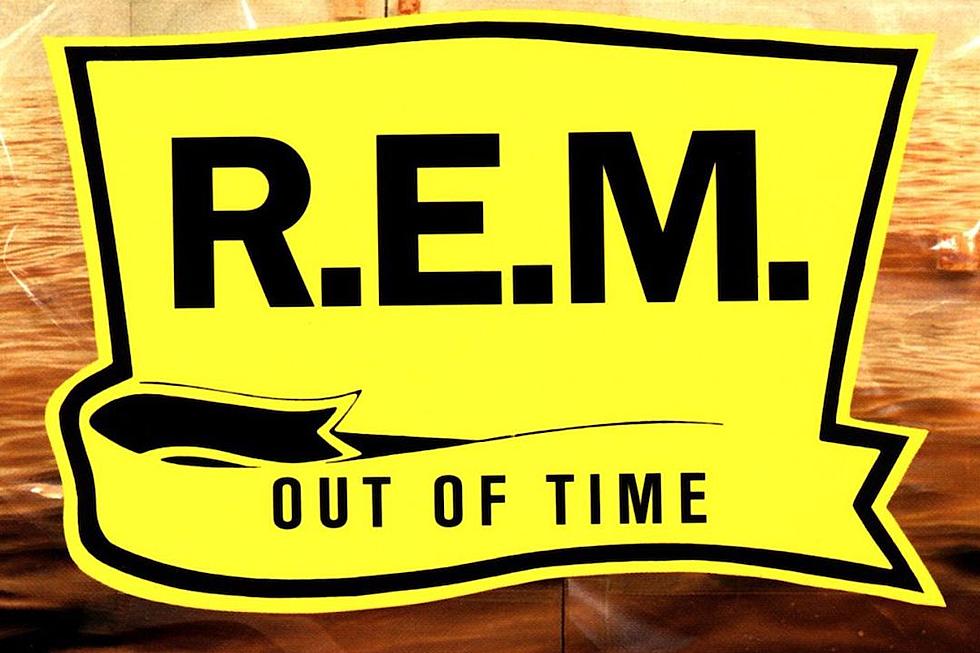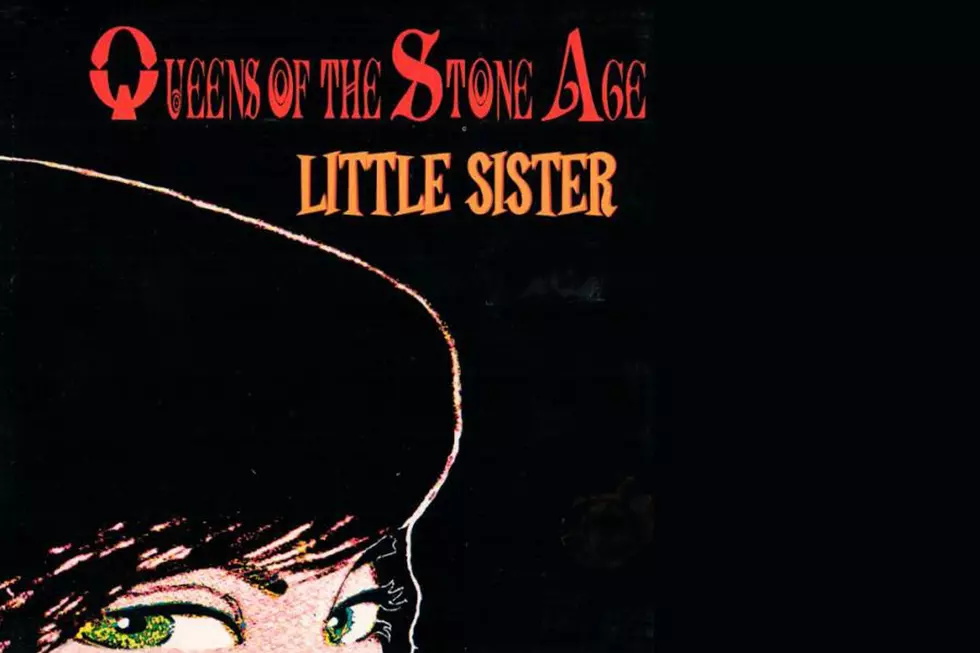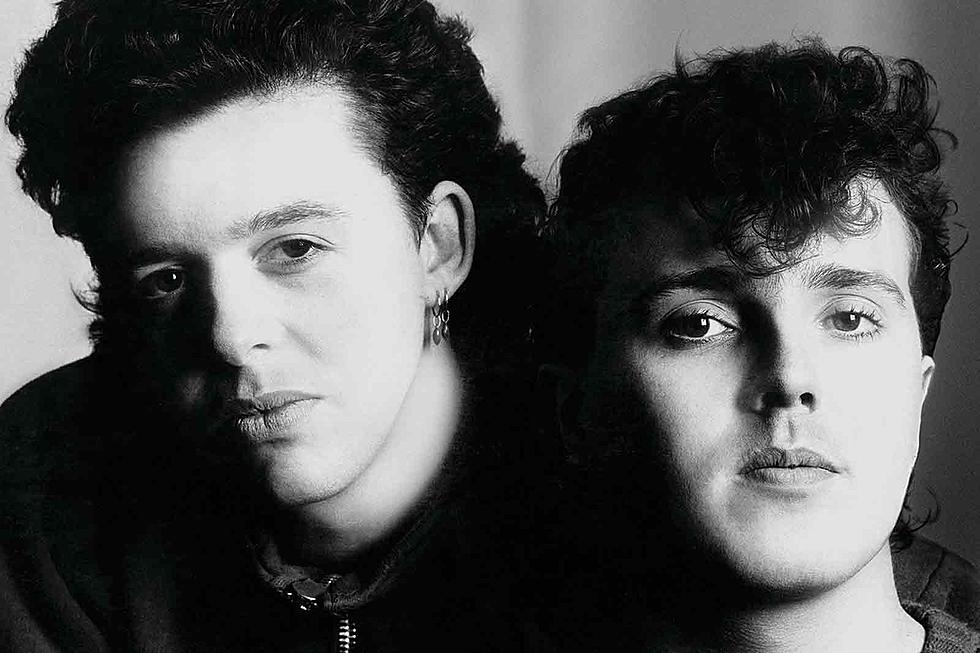The Human League Found New Direction, Changed New Wave With ‘Dare’
Released on Oct. 16, 1981, the Human League's Dare (or, as it was known in the U.S., Dare!) was one of new wave's first great triumphs, a sparkling display of futuristic synthpop fused with equal parts romantic sentimentality and emotional anxiety. Unlike the Sheffield, England, group's early work — which hewed toward greyscale, industrial-sounding keyboard music — Dare felt defiantly modern and accessible, a great leap forward into the '80s that leveraged new technology and embraced the sense that music's future was wide open.
At the turn of the '80s, the Human League was at a crossroads. Although the troupe had released two albums (1979's Reproduction and 1980's Travelogue) via major label Virgin — and performed a cover of Gary Glitter's "Rock 'n' Roll" on Top of the Pops — the band lineup was in disarray. In late 1980, co-founding keyboardists Ian Craig Marsh and Martyn Ware left the Human League amid animosity, and focused on Heaven 17. That left vocalist Philip Oakey and keyboardist/visuals guru Philip Adrian Wright as the only remaining members.
As Oakey relayed in the BBC Four documentary Synth Britannia, seeing the chart success of other keyboard-heavy acts such as the Flying Lizards, Dave Stewart and Barbara Gaskin, and Gary Numan made him realize the Human League needed to up its game. "I thought, 'We've blown it. We now look like the also-rans. Everyone has taken the idea and done a lot better than us.'"
Watch the Human League Discuss Their Early History
Undeterred, Oakey pushed on and recruited two 18-year-olds he met at a Sheffield dance club, Joanne Catherall and Susan Ann Sulley, to join the band. (On BBC Four's Top of the Pops: The Story of 1981 special, the duo laughed that Sulley's mom had to pull them out of English class so they could appear on TOTP.) Keyboardist Ian Burden — who had previously toured with the band and boasted composition skills — also signed up; eventually, so did former Rezillos member Jo Callis, who also added keyboards.
The addition of Catherall and Sulley in particular was savvy, because it "meant we could appeal to women as well as men," Oakey said in Synth Britannia. "The early Human league was a very male-based group. And, really, only lads in long coats liked us." More important, to record Dare the band enlisted producer Martin Rushent, who had previously worked with the Stranglers, Generation X and Buzzcocks. His ability to coax out the pop sensibilities from punk bands without shaving off their rougher edges made him a good choice to wrangle the Human League, whose inexperience (Sulley and Catherall had never sung professionally, for example) made the group's approach charmingly DIY.
"I think the only master plan that existed was how the band should look," Rushent said of Dare in a 2010 Sound On Sound interview. "That was very important to Phil [Oakey], who was trying to make a new electronic Abba. He probably thought it was going to sound a bit darker than how it ended up, and the best example of that was 'Don't You Want Me.'
Watch the Human League Perform 'Love Action'
"Both Sue and Jo were young innocents singing the best they could, and they did add a certain unique charm to the whole album,” Rushent added. "Had we used professional singers, it wouldn't have been the same. Remember, for Phil it was all about the look, and having a blonde girl and a dark girl who could dance in a very modern way was his Abba brain at work. Whether they could sing or not was not really of importance to him, so the fact that it worked was all a f---ing accident."
Yet this inexperience gave Dare a warmth and relatable bent that helped erase the band's icy and serious reputation. Plus, it sounded polished: "Love Action (I Believe in Love)" and "Open Your Heart" have lilting, exuberant sensibilities that harken to unabashed classic pop bands, while the slightly cheeky, co-ed vocals driving the bustling "Do or Die" meshed well with the spiraling sound effects and curlicue synth work.
Still, Dare was by no means lightweight. In fact, the LP was also deeply vulnerable: "Darkness" utilized hymn-like keyboards and echoing Oakey vocals to confide a fear of personal demons and nightmares, while the hollowed-out "Seconds" references JFK's assassination and utilizes space-travel keyboard booms for a somber effect. Musically, "The Things That Dreams Are Made Of" possesses eerie keyboard drone and minimal drums to convey unease, while "I Am the Law" shares DNA with the group's more experimental, gloomier early work.
To cultivate such a unique sound, Rushent and the Human League utilized a fleet of keyboards and other new studio gadgets, including some incredibly cutting-edge gear. For example, the very first LinnDrum in England reportedly ended up in the studio where Dare was being recorded. As a result, Oakey recalls in Synth Britannia, they replaced the rhythms that had been on "The Sound of the Crowd" with the newer drum sound.
Watch the Human League Perform 'Sound of the Crowd'
The success of that song in particular — it hit No. 12 on the charts and became the Human League's first big hit — befuddled Oakey. "I feel really proud that we did one of the weirdest-ever successful singles," he said during The Story of 1981, an incredulous tone in this voice. "That must be the weirdest record that's ever got in the Top 10, isn't it? It's so strange." Oakey later laughs as he recalls he nicked the wordless grunts from one-time tourmate Iggy Pop: "Why did people buy that?"
Yet people did buy "The Sound of the Crowd" — and, in the U.K., also threw down for subsequent singles "Love Action (I Believe In Love)" and "Open Your Heart," both of which landed in the Top 10. The placements were eclipsed easily, however, by the worldwide pop hit "Don't You Want Me."
Buoyed by a shifty-eyed melody and sinister keyboard tones, the he-said-she said narrative details the story of how a relationship unfolded and ended. The male character puffs up his own ego and brags that he "made" his ex ("Don't forget, it's me who put you where you are now/And I can put you back down too"), while the woman assures she's much better off without him and that he flatters himself with such claims: "Even then I knew I'd find a much better place/Either with or without you." The song's universal theme resonated with both radio and MTV, and it hit No. 1 in the U.S., U.K., Canada, New Zealand and Ireland.
Watch the Human League Perform 'Open Your Heart'
"When I first heard it, only about half of the song had been written and it was very, very rudimentary," Rushent recalled. "That was the case with most of the songs: They were semi‑written or they just consisted of a riff. You know, 'Yeah, that's a great riff; let's build it into a song,' and everyone then singing their ideas.
"In the case of 'Don't You Want Me,' the vocals went on quite early," he continued. "That was because the drums and bass were finished, and we also had a really good guide synth keyboard, but there were logistical problems due to the availability of Phil and the girls. So I said, 'Let's do the vocals now. Then, when you're away, Jo [Callis] and I can finish the track.' That's what happened — once Phil and the girls had buggered off to do whatever they had to do, Jo and I went to town on it and made it far more commercial."
Dare itself ended up peaking at No. 1 in several countries (although it reached No. 3 in the U.S.) and made the Human League stars. As Catherall and Sulley told The Quietus in 2011, fame was a disorienting experience. "When we did ‘Sound of the Crowd’ it was fun," Catherall said. "Doing Top of the Pops was great because it was the program that you’d always stayed in to watch all the way through your teenage life. It was only when the album came out and ‘Don’t You Want Me’ went huge that it went silly. Then we couldn’t go to a clothes shop without having to have the door locked behind us, because there were so many people trying to get in after us."
Watch the Human League Perform 'Don't You Want Me'
Adds Sulley: "I still remember the first time we went to New York and we got picked up in a limo. I was a little girl from Sheffield. I didn’t have wide horizons. I’d only been to Spain twice. Anyway, I was very tired and I fell asleep. Our manager woke me up and said, 'You have to see this now, because it will never be like this again.’ He lowered the window and there was that skyline of New York. And I cried. Because I was just a little girl from Sheffield seeing it for the first time. Those sort of things stay with you forever, but all the other stuff that went with it, I didn’t like."
Nevertheless, the Human League weathered those ups and downs of stardom. The core trio of Oakey, Catherall and Sulley are still together, notably celebrating a comprehensive collection titled A Very British Synthesizer Group, which was released 2016. Decades on, the Human League remain not just beloved — but influential and respected.
21 Best Alt Rock Albums of the 21st Century
More From Diffuser.fm









